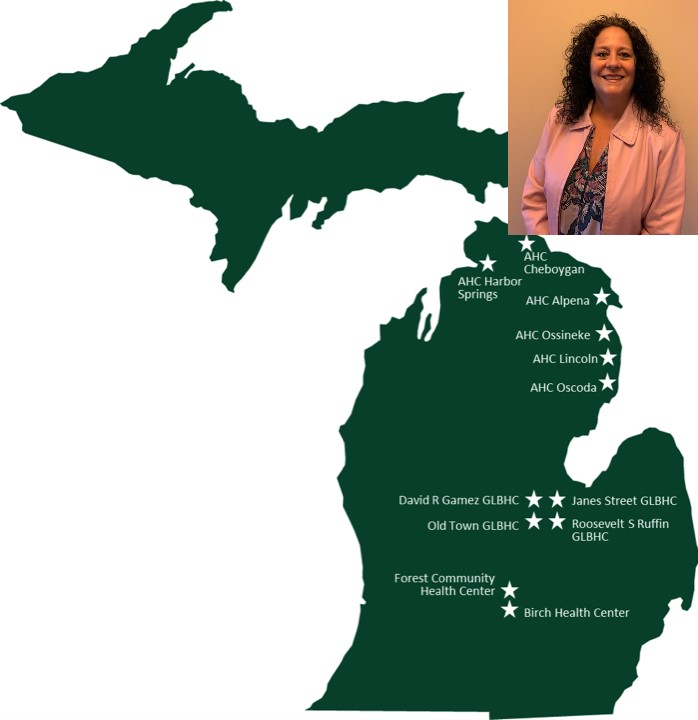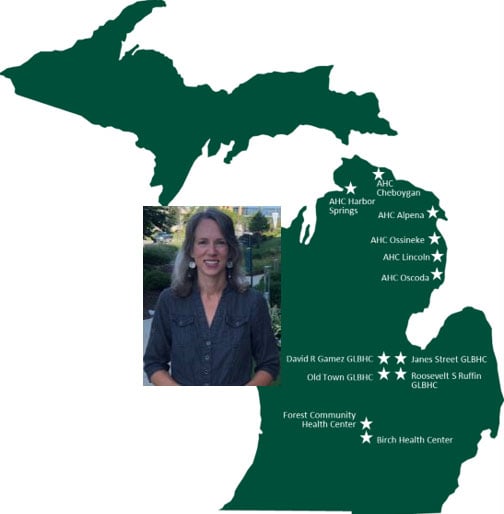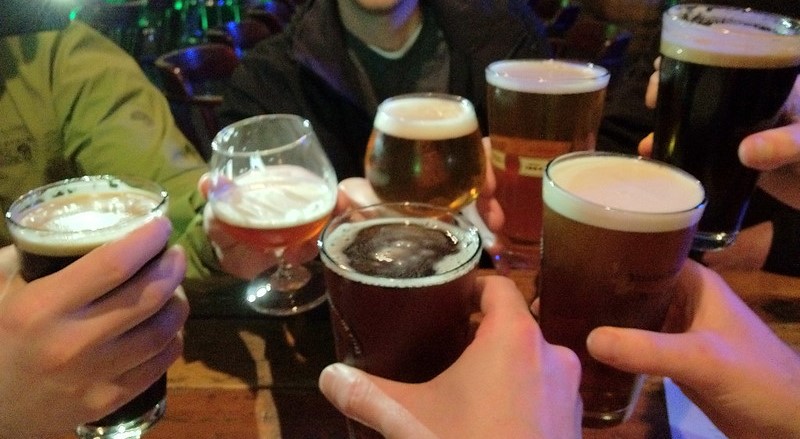2025 Medicare Open Enrollment
You only have until December 7th, 2025, to make changes to your Medicare plan and see what your cost will be for doctor visits, co-pays and prescriptions in 2026. There are easy steps you can take to ensure you can afford your health care and prescriptions in the year to come. Visit https://www.medicare.gov, follow the instructions to see exactly what your out-of-pocket cost are going to be in 2026. Here, you can compare up to 5 pharmacies, including mail order delivery pricing, and view your plan, before signing up for coverage.
If you need assistance signing up for your 2026 plan or need additional explanation of these plans, you can call MI OPTION at (800) 803-7174 to help locate a State Health Insurance Assistance Program (SHIP) counselor in your county/area. The trained SHIP counselors are volunteers from your county, and they do not benefit from your enrollment.
To ensure you secure an appointment, I encourage you to call now due to the limited number of available appointments during this last month of enrollment.

Change is the Only Constant
What habits do you want to change?
• Do you drink too much sugary soda?
• Do you get less than a half hour of physical activity every day?
• Do you watch more than one hour of television?
• Do you sleep enough?
• Do you eat mindlessly?
• Do you work in an environment that makes healthy living difficult?
• Do you eat to deal with emotions?
Success breeds success. Make small goals. Be patient with yourself and find supportive friends. Write down your health goals, date them and update them as you progress.
10.01.2025: I will walk 5,000 steps a day.
10.01.2025: I will buy more vegetables.
10.01.2025: I will notice my breathing every time the phone rings.
After some progress
12.01.2025: I will walk 10,000 steps a day.
12.01.2025: I will cut vegetables and fruit so I am always ready with a healthy snack.
12.01.2025: I will write down three things I am thankful for every day.
To stay on this route to health and well-being, you need to wake up from your autopilot mode. You have to live deeply and with more awareness so that you can be attentive to each moment.

Open Enrollment Is Right Around The Corner
It’s a great time to start reaching out to your local Michigan Medicare/Medicaid Assistance Program (MMAP) counselors, to ensure you get an appointment for the 2026 coverage year. To find your local program assistance, go to Medicare.gov or call,1-800-MEDICARE (1-800-633-4227). Open enrollment for coverage in 2026 is October 15th, 2025 through December 7th, 2025. During this time beneficiaries can enroll in new plans, switch plans, or drop their current coverage. Changes take effect on January 1, 2026.
You can also get yourself acquainted with Medicare, who is eligible, and answer your questions on the Medicare.gov website. Please do yourself a favor, call and make your appointment today, let these experienced individuals help you understand and plan for 2026.

What Are Health Insurance Deductibles?
A health insurance deductible is a specified amount you must pay first before your insurance will begin paying your medical costs.
For example, if you have a $1000 deductible, you must first pay $1000 out of pocket before your insurance will cover any of the expenses from a medical visit. The time it takes you to reach your deductible will depend on how often you are seen in a medical facility. This includes but is not limited to doctors visits, emergency room visits, specialist visits and even physical therapy visits.
You’ll pay your deductible payment directly to the medical professional, clinic, or hospital. If you incur a $700 charge at the ER and a $300 charge at a specialist visit, you’ll pay these amounts directly to the facility where your appointment was held. Insurance companies do not collect the deductible amount. When you have “met” or paid your deductible in full, your insurance company will then start paying for your insurance-covered medical expenses. It’s important to know what are covered expenses and what expenses will be out of pocket cost to you as the insured.
Your deductible automatically resets to $0 at the beginning of your policy period. Most policy periods are 1 year long. After the new policy period starts, you’ll be responsible for paying your deductible again until it’s fulfilled.
Holland, K. (April 20, 2021). How Do Health Insurance Deductibles Work? Healthline. www.healthline.com/health/consumer-healthcare-guide/how-do-health-insurance-deductibles-work?

Dietary Digest with Amy
Change
If you’ve received any of the Office GAP diabetes education or text messages, you’re probably trying to change your eating patterns. Change is hard, how to change?
Slow down and look at your habits without judgement. The goal of the food industry is for you to eat. The technology revolution allows us to move less. To change and go against these societal forces we must slow down. We need to be fully aware of our choices. If we slow down, we can mindfully smile at our late-night ice cream habit and let it pass. Embrace the difficult feelings, breathe and believe you have the strength to change.
Allow yourself to truly feel that life would be significantly better with a better diet. Imagine your life as you feel better and become healthier.
Love yourself and believe that you can make changes and reach your goals. Be thankful for the good health you currently have, good eyesight, strong sleep schedule, lungs are healthy. Being appreciative will create happiness and energy to meet new challenges.

Michigan Medicare/Medicaid Assistance Program (MMAP)
Summer is right around the corner and it’s never too late to start planning, getting questions answered and preparing for your health care needs. It’s your responsibility to ensure you have the coverage you will need for years to come.
Having insurance and understanding your coverage can be very challenging. There are trained specialists throughout all counties of Michigan to help. Below we have provided information from the state's website to ensure you find the help you need. These counselors can answer your questions, explain new state policies and enroll you in a Medicare/Medicaid plan.
To learn more about MI Health Link, contact the Michigan Medicare/Medicaid Assistance Program (MMAP) Options Counselor or MI Enrolls. The MMAP telephone number is 1-800-803-7174, office hours vary by location, open Monday through Friday (except holidays). The MI Enrolls toll-free telephone number is 1-800-975-7630. TTY users may call 1-888-263-5897. Office hours are 8:00 am to 7:00 pm EST, Monday through Friday (except holidays). You can also go online at Michigan Medicare/Medicaid Assistance Program (MMAP) to apply.

Stress Affects Heart Health
You don’t need fancy equipment or expensive therapy to start managing your stress. Here are a few everyday strategies that can make a big difference:
- Deep Breathing: Just a few minutes of slow, deep breathing can calm your nervous system.
- Exercise: Walking, jogging, or even dancing releases feel-good hormones that reduce stress.
- Sleep Well: Aim for 7–9 hours of sleep a night. Poor sleep increases stress and heart risk.
- Talk It Out: Sharing your thoughts with friends, family, or a counselor can ease mental burdens.
- Meditation or Yoga: These practices combine movement, breathing, and relaxation.
Managing Stress with Health Insurance
There are some simple but very important steps you should always consider when looking into insurance coverage.
- First finding out what insurances your community and health centers accept, and which ones are in network. This will help eliminate any unforeseen health care and prescription costs.
- Second, find a local specialist trained in Medicare and Medicaid law and regulations, health insurance counseling and relevant insurance products. They are referred to as MMAP counselors. Each community usually has a small number of MMAP counselor volunteers trained to help you understand your options and explain each plan in detail. MMAP counselors can normally be located at your local agency on aging or senior centers and their services are free, unlike insurance company employees, working on commission.
- Make an appointment with the MMAP counselor. Insurance open enrollment normally starts early October-December and making your appointment sooner than later will ensure you get an appointment. At your appointment MMAP counselors can answer questions, show you how much out of pocket cost you will have, for prescription, doctors’ visits and specialist visits and enroll you in a plan for the following year.
- Last step, prepare for your appointment. Preparation should include making a list of all your current prescribed medications, know the name of your preferred pharmacies (can have up to 4), know how much out of pocket cost you can afford per month/year and having a list of all specialty doctors, will help this process go smoothly.

Joyful Habits
Our bodies and minds crave activity. You will thank yourself if you change your sedentary habits.
What new activities would bring you joy?
Acting, biking, bowling, camping, caring for a pet, cleaning, cooking, crafting, dancing, laundry, push-ups, sit-ups, yoga, drawing, fishing, gardening, spiritual activities, golfing, grocery shopping, hiking, visiting friends, journaling, jogging, jumping rope, knitting, listening to music, meditating, walking, organizing, painting, playing an instrument, board games, frisbee, team sports, tennis, hacky sack, reading, scrapbooking, singing, skating, sleeping, puzzling, storytelling, stretching, swimming, photography, tutoring, museum, volunteering, walking, woodworking, wrenching, writing.
Make a plan. It is natural to backslide. Do not judge yourself harshly, start again.
Create joyful habits for yourself, you are worth it.

Insurance Tips with Sandy
The Medicare Summary Notice (MSN), which provides information on Original Medicare Claims, is one of the key tools that the SMP program uses for catching fraud, errors, and abuse.
Reviewing and understanding MSNs is crucial for both Medicare beneficiaries and for SMPs. Go to tutorial reviews the basics of how to read your MSN.
If you’ve got questions, the Medicare/Medicaid Assistance program has answers. They don’t sell Medicare plans—they just help you understand them. Their local, certified counselors are here to guide you. They offer personal assistance at no charge. Let them be your guide to maximize your benefits and savings.
Call 1-800-803-7174 to speak to a counselor in your area. Or visit Michigan Medicare/Medicaid Assistance Program (MMAP)


Your Type II Diabetes and Alcohol
Managing type 2 diabetes involves careful lifestyle choices, including alcohol consumption. Understanding how alcohol affects blood sugar is essential for making informed decisions.
Effects on Blood Sugar Alcohol impacts blood sugar in two ways: it can lower it by interfering with the liver’s glucose release or raise it if the drink contains carbohydrates. This can lead to hypoglycemia (low blood sugar) or spikes, making monitoring crucial.
Medication Interactions Alcohol can interact with diabetes medications, increasing the risk of hypoglycemia, especially with insulin. Additionally, excessive drinking while on metformin may cause lactic acidosis, a rare but serious condition.
Safe Drinking Guidelines
Drink in Moderation: Men should limit alcohol to two drinks per day, women to one.
Never Drink on an Empty Stomach: Eating helps prevent blood sugar drops.
Choose Wisely: Opt for low-carb options like dry wines or spirits with sugar-free mixers.
Monitor Blood Sugar: Check levels before and after drinking.
Carry Medical ID: Helps in emergencies if blood sugar drops suddenly.
Who Should Avoid Alcohol? Individuals with uncontrolled diabetes, neuropathy, high triglycerides, liver/kidney disease, or those who are pregnant should avoid alcohol.
Conclusion Moderation and smart choices are key when consuming alcohol with type 2 diabetes. Always consult your doctor to ensure safe drinking habits
Article by Dr. Alvi Syed
Dietary Digest with Amy
Mindful Eating Leads to Smaller Portions
The skill of mindful eating will help your regular meals bring more pleasure and generally decrease the quantity you eat. The goal is to eat less and still enjoy your meal.
The exercise:
- Take, wash and dry an apple. An orange or other fruit will also work.
- Look at the apple and think about the way you usually snack. Do you enjoy your food? Why are you so preoccupied that you miss the pleasure of eating?
- Concentrate on the apple. Be still.
- Be thankful for the earth, science, farmers and workers that made this apple available to you.
- Take a bite. Chew slowly and completely each bite.
- Continue eating.
- Be aware of your breath.
- If your mind drifts to projects, deadlines, fears, sorrow, anger, past, future, bring your focus back to the apple.
Paying attention to the present is difficult in our busy lifestyles.
- Apple fiber and antioxidants prevent plaque build-up in blood vessels, preventing heart disease.
- The fiber also helps move waste through the small intestines, lowering the risk of irritable bowel syndrome.
- Half of the apple’s vitamin C is in the skin. The skin is also rich in phytochemicals, which fight chronic disease.
- Apples are packed with potassium, which can help keep blood pressure under control.

